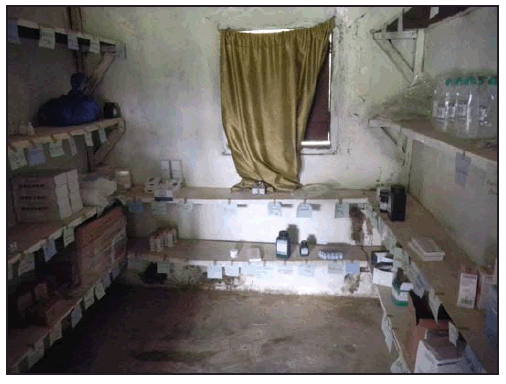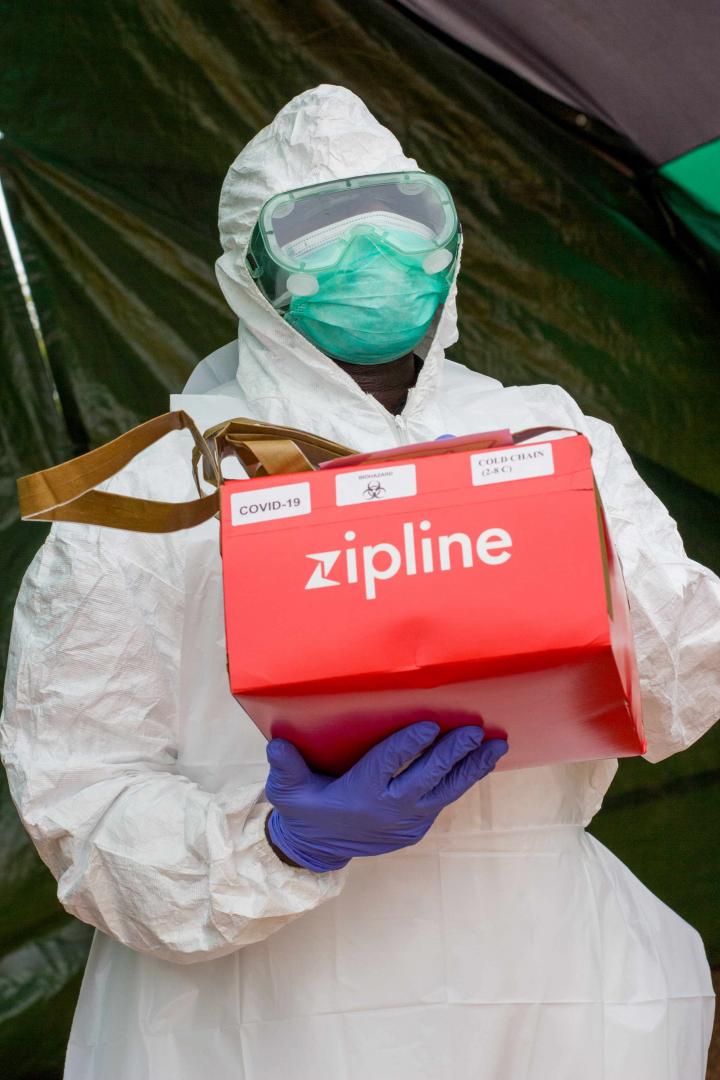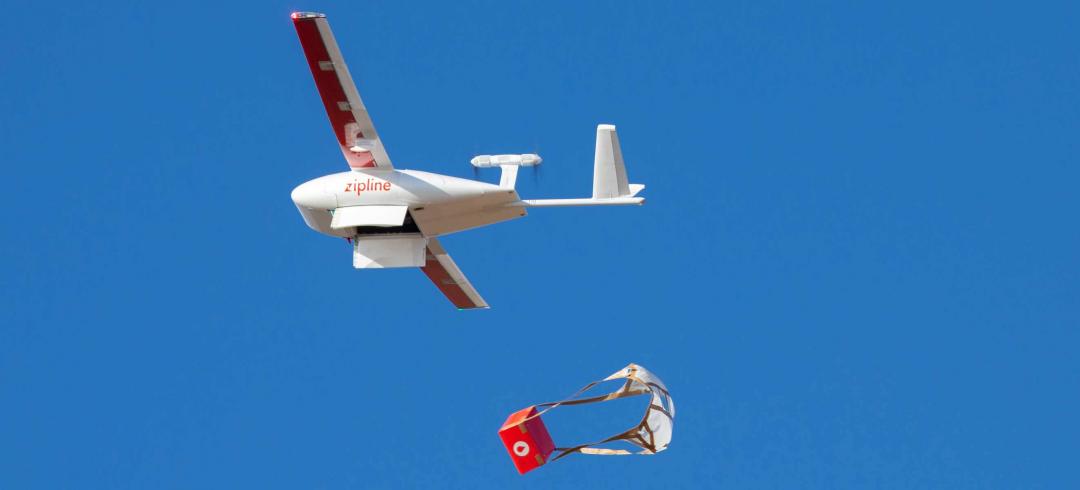How Africa Is Using Medical Drone Delivery to Combat COVID-19
The Covid-19 pandemic has introduced extraordinary challenges for health systems and communities around the globe. Countries are faced with surging demand on hospitals, keeping vulnerable populations safely at home, and effectively managing scarce resources like test kits, personal protective equipment, and, someday hopefully soon, a vaccine.
As policymakers search for solutions in real-time, many are turning to autonomous drone delivery for help. That’s no accident: Zipline was almost literally “born” to do this.
In 2014, Zipline’s founding team of robotics engineers was compelled to begin designing a drone-based delivery system for medical products after seeing the devastation caused by the Ebola outbreak in West Africa. Communities suffered not only from the deadly virus itself but also from interrupted access to other essential healthcare services.
Countries were faced with a stark choice: protect healthy communities from transmission or send urgently needed medical products to the front lines of the outbreak. In this way, the Ebola outbreak’s damage included severe setbacks to maternal health, childhood immunizations, and the control of HIV, TB, and malaria.

In the years since, Zipline has partnered with Silicon Valley’s top engineers and investors, leading institutions in global health, and the governments of Rwanda and Ghana to implement national-scale drone delivery systems that enable health systems to meet patients’ needs nationwide, even--and especially--in circumstances that challenge traditional logistics systems.
Zipline establishes operations from distribution centers that are part medical warehouse and part droneport. Each has the capacity to make hundreds of autonomous deliveries a day, to any health facility within an 85-kilometer radius, on a network of fixed flight paths that connect our warehouses to their delivery points via invisible “subway tunnels in the sky.” We have hired and trained passionate young professionals across Rwanda and Ghana to serve their communities as fulfillment and flight operators, receiving and launching orders for medical products within minutes while expertly handling the world’s safest and most experienced drone delivery technology.
Since launching our service in 2016, Zipline has helped national health systems react effectively to medical emergencies in remote communities, system-wide shortages of products, unrelenting rainy seasons that render roads impassable, and unexpected stock-outs of critical vaccines and medicines. With more than 34,000 commercial deliveries to date--approximately a third of which occur in response to an immediate and urgent patient need--we have become accustomed to taking emergencies in stride.

Zipline’s work to help Ghana and Rwanda build more responsive and resilient national health systems over the last several years has made it possible for us to become an important part of their efforts to plan for and respond to Covid-19. We’re working around the clock to ensure that health facilities we serve maintain reliable access to the supplies and medicines they need to address Covid- and non-Covid-related healthcare needs.
At the governments’ request, Zipline is helping to reduce social contact and exposure to Covid-19 by taking truck deliveries off the road in every instance possible. This involves stepping up the volume and breadth of our service to more comprehensively meet the medical product needs of the facilities we serve, well beyond the ~150 most critical blood products, medicines, and vaccines in our initial product scope.

In Ghana, Zipline has begun delivering Covid-19 test samples collected from patients in more than 1,000 health facilities located in difficult to reach rural areas of Ghana to laboratories in Accra, the nation's capital, and Kumasi, the country's second-largest city.
Before Zipline, Covid-19 test sample delivery could take between many hours to many days. The time delay not only jeopardized the government's ability to respond swiftly but also increased the risk that the samples were damaged in transit due to broken cold-chain storage. Now, a single test from a rural area can be transported for analysis in under an hour.
Zipline is also holding emergency stocks of scarce items - like protective masks and gloves - to help health authorities avoid dangerous shortages and rapidly target distribution to frontline responders precisely where they are most needed in real time . If patient volumes and demand for medicine surge , Zipline can respond by immediately increasing delivery volumes to those hot spots to meet the need.
As with Ebola, there is also the potential that harm to non-Covid patients could ultimately be greater than Covid patients, if access is interrupted to essential health services like emergency blood transfusions, routine childhood vaccines, and treatments for chronic conditions and infectious diseases. Zipline remains focused on providing consistent availability to the critical medical products health facilities need to ensure their operations continue running smoothly and serving patients’ needs. For example, In Rwanda, Zipline is working with Partners In Health to deliver chemotherapy drugs to cancer patients unable to travel long distances for care due to Covid-19 related quarantines.
As the response continues, we remain on alert for how we can help in new ways. For example, Zipline real-time visibility into medical product demand can provide an early warning system to help health officials spot Covid-19 outbreaks. As hospitals seek to free up bed space for Covid-19 patients, Zipline can help the health system quickly and easily shift more basic and maintenance care to clinics so that patients require less travel to seek care and immunocompromised patients are less likely to be exposed.
And finally, new vaccines can be added to Zipline’s inventory and delivered at national scale, in real time, as soon as they become available.
This is a moment for Zipline to focus on our reason for being--but it’s also a stark reminder of how far we are from achieving our mission of providing every human on Earth with instant access to vital medical supplies. Until the day that every health worker and patient has on-demand access to the critical and lifesaving support they need, Zipline will move as fast as possible to play our part in strengthening health systems around the world to reach them.
The global health community knows the “never again” mantra well. One can only hope that a silver lining of a crisis of this magnitude and universality is that more of these promises will gain traction in the months after, as governments across the world turn to rebuilding.
Six years ago, Ebola highlighted important lessons that have helped better prepare the world for Covid-19. What will the lessons of this pandemic prove to be? One already seems to be that the best-resourced countries are not necessarily those that are best prepared to weather this storm. The strongest health systems are those that invest in having the resilience and agility needed to quickly handle small and large unforeseen events every day.

More information
